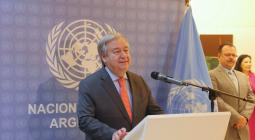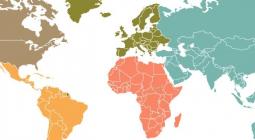In support of climate action, Cool Coalition partners announce huge push on efficient, climate-friendly cooling.

Commitments include national cooling plans, business reform and funding
● Without action, emissions from cooling sector set to grow 90 per cent by 2050
● Moving to best available technologies would reduce cumulative emissions by of 38-60 GtCO2e by 2030 and up to 130-260 GtCO2e by 2050 and save up to USD 2.9 trillion globally between now and 2050
New York, 23 September 2019 – As the world gathered for the Climate Action Summit today, partners of the Cool Coalition announced major new commitments on efficient, climate-friendly cooling which can make a huge positive impact on climate change, help achieve sustainable development and save trillions of dollars.
Commitments include governments promising to develop comprehensive national cooling plans, major companies in the cooling industry pledging to cut the emissions of their products, and donors providing new funding.
Catalyzed by the Kigali Cooling Efficiency Programme, the Cool Coalition – a global network connecting over 80 partners from the private sector, government, cities, international organizations, finance, academia and civil society – was set up in April 2019 and works to expand access to cooling while reducing the climate impact.
The cooling challenge has been referred to as a “blind spot” in climate action, which must increase at least fivefold to keep the global temperature rise this century to 1.5°C. By taking forward an unprecedented and coordinated surge of activity to make efficient, climate-friendly cooling accessible for all, the Cool Coalition is responding to the UN Secretary-General’s call for accelerated climate action.
Over one billion people presently face immediate risks from a lack of cooling, and a warming planet means this number will only increase. But cooling actually contributes to heating the planet. By 2050, space cooling alone will consume as much electricity as China and India today and much of the world’s projected renewables capacity. But according to the latest research, moving to best available technologies would reduce cumulative emissions by 38 -60 GtCO2e by 2030 and up to 130-260 GtCO2e by 2050.
“Three years ago, the world adopted the Kigali Amendment to the Montreal Protocol to phase out the hydrofluorocarbon greenhouse gases used in cooling,” said Dr. Vincent Biruta, Minister of Environment of Rwanda. “If successfully implemented, the Kigali Amendment, coupled with better energy efficiency, will avoid a full one degree of warming by the end of the century. Efficient cooling is essential to achieving the targets of the Paris Agreement.”
Getting cooling right offers a three-in-one opportunity to cut global warming, improve the lives of millions of people, and realize huge financial savings,” said UN Environment Programme (UNEP) Executive Director Inger Andersen. “The Cool Coalition is a powerful new collective force for realizing these and many other benefits. UNEP is delighted to be working with such a wide range of stakeholders to accelerate the transition towards efficient, climate-friendly cooling for all.”
Below is the full list of pledges issued in support of the Cool Coalition:
- 26 countries, including Bangladesh and the Philippines, will adopt comprehensive national cooling plans. Led by France, several countries are committing to the Biarritz Pledge for Fast Action on Efficient Cooling.
- Five countries – the Dominican Republic, North Macedonia, Rwanda, Senegal and Spain – have today committed to integrate cooling in their Nationally Determined Contributions.
- Additional countries making cooling-related pledge today are: Andorra, Chile, Costa Rica, Denmark, Djibouti, Hungary, Japan, Lebanon, Norway and United Kingdom.
- The World Bank Group and the Green Climate Fund are integrating clean and efficient cooling across their lending/investment portfolios.
- The Children’s Investment Future Fund (CIFF) has pledged an additional US$20 million in funding for cooling, bringing K-CEP funding to over USD 60 million.
● C40 cities, including Copenhagen, Medellin and Barcelona, will work with their network of more than 90 member cities to share expertise and integrate urban cooling into their climate action plans to reduce energy consumption while improving air quality.
- Danfoss, Electrolux and Mabe will publicly release plans by the end of 2019 to switch to lower global warming potential refrigerants in all of their cooling product lines. Engie plans to invest between €1.8-2.0 billion in highly efficient District Cooling systems by 2024. Others will scale up pilot projects – for example, EMPOWER will support projects in 10 new cities and Tabreed will invest in cooling efficiency innovations in seven countries.
“Overall cooling represents 70 per cent of peak energy consumption in the GCC. Getting cooling right in this region is a necessity and we have been taking actions over 20 years to reduce the energy demand using district cooling. Tabreed is committed today to investing in innovation to make cooling more efficient in seven countries including India where the demand is growing,” said Bader Al Lamki, CEO of Tabreed.
Following the Summit, partners will focus on action at the national and local level that leaves no one behind, including turning 26 national cooling plans into action, scaling up finance, installing cool roofs across the globe and driving technology pilots.
These actions will also be included in updated country Nationally Determined Contributions, due in 2020. Five countries, including Senegal, have already committed today to integrate cooling in their Nationally Determined Contributions; other Cooling Coalition partners are expected to expand this number.
“In Senegal, we need more cooling to ensure our people can live healthy and productive lives,” said Macky Sall, President of Senegal. “We also don’t want this expanded access to come at the expense of climate change. This is why Senegal will put efficient, climate-friendly cooling in its Nationally Determined Contribution and commit to sustainable growth of the industry.”
For more information on the Cool Coalition, visit: www.coolcoalition.org
Additional quotes:
“Rapid action to make efficient, climate-friendly cooling available to everyone requires global collaboration – across governments, cities, the private sector, and civil society. The collaboration created by the Cool Coalition will advance this crucial agenda, and we are proud that philanthropy is doing is part to help make efficient, climate-friendly cooling a reality”, said Charlotte Pera, President and CEO of the ClimateWorks Foundation.
“Electrolux will accelerate its work to make energy efficient refrigerators and freezers available for developing countries, hand in hand with the introduction of the necessary energy efficiency legislation,” said Jonas Samuleson, CEO of Electrolux. “In addition, as refrigerant gases can have a considerable climate impact, by the end of 2019 Electrolux will propose a plan to move towards refrigerants with reduced global warming impact.”
“With the growth of cooling demand, it’s important that we deliver sustainable cooling that is energy efficient. That’s why Danfoss is part of the Cool Coalition. To show action, we will bring innovative solutions that are oil-free and with Low Global Warming Potential, educate and inform more than 30,000 people yearly in cooling issues, develop a sustainable business case for cold chain technology, and help develop national cooling plans to drive down cooling emissions,” said Jürgen Fischer, President of Danfoss Cooling.
About the UN Environment Programme (UNEP)
The UN Environment Programme is the leading global voice on the environment. It provides leadership and encourages partnership in caring for the environment by inspiring, informing, and enabling nations and peoples to improve their quality of life without compromising that of future generations.
For more information, contact
Sophie Loran, Communications Officer, Energy & Climate Branch, United Nations Environment Programme, sophie.loran[at]un.org
Keishamaza Rukikaire, Head of News and Media, UN Environment Programme, rukikaire@un.org
23 September 2019
UN ENVIRONMENT





